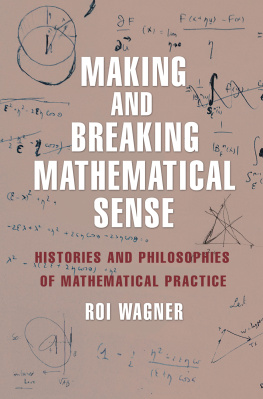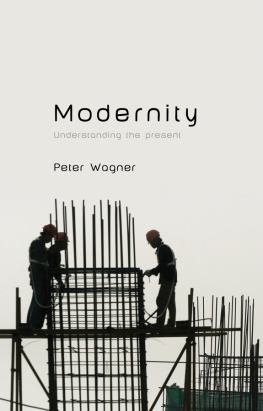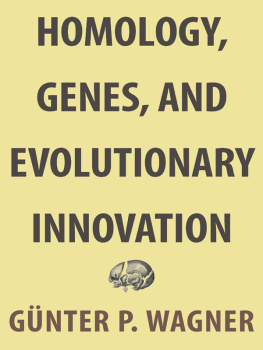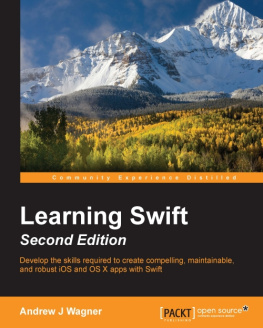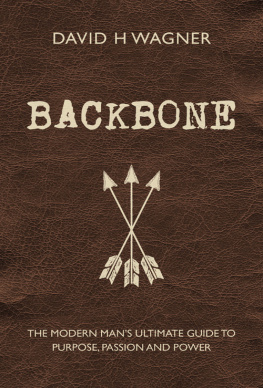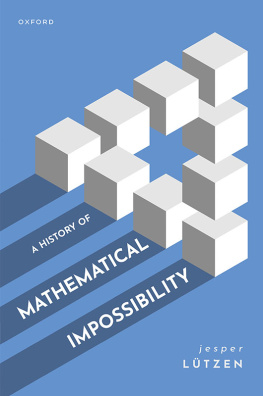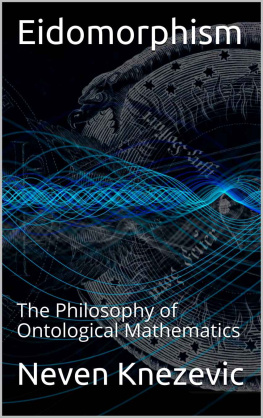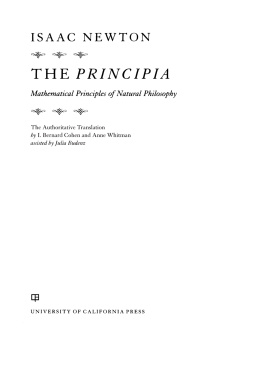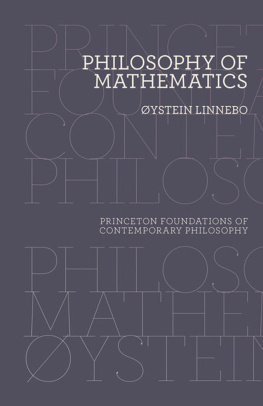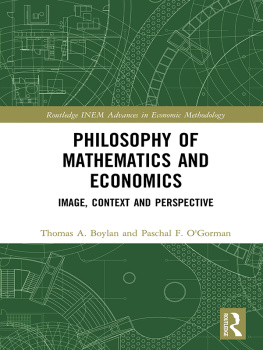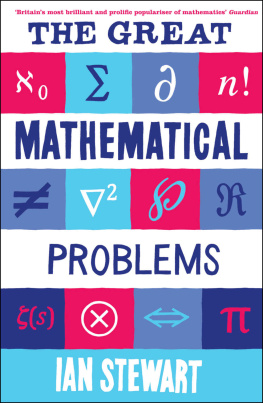
Making and Breaking Mathematical Sense

Making and Breaking Mathematical Sense
HISTORIES AND PHILOSOPHIES OF MATHEMATICAL PRACTICE

Roi Wagner
PRINCETON UNIVERSITY PRESS
PRINCETON AND OXFORD
Copyright 2017 by Princeton University Press
Published by Princeton University Press, 41 William Street, Princeton, New Jersey 08540
In the United Kingdom: Princeton University Press, 6 Oxford Street, Woodstock, Oxfordshire OX20 1TR
press.princeton.edu
All Rights Reserved
Library of Congress Cataloging-in-Publication Data
Names: Wagner, Roi, 1973
Title: Making and breaking mathematical sense : histories and philosophies of mathematical practice / Roi Wagner.
Description: Princeton : Princeton University Press, [2017] | Includes bibliographical references and index.
Identifiers: LCCN 2016022844 | ISBN 9780691171715 (hardcover : alk. paper)
Subjects: LCSH: MathematicsPhilosophyHistory. | MathematicsHistory
Classification: LCC QA8.4 .W334 2017 | DDC 510.1dc23 LC record available at https://lccn.loc.gov/2016022844
British Library Cataloging-in-Publication Data is available
This book has been composed in Linux Libertine O and Myriad Pro
Printed on acid-free paper.
Printed in the United States of America
10 9 8 7 6 5 4 3 2 1
To Rhone, whos too good for some clich dedication
Contents

Acknowledgments

THIS BOOK INTEGRATES THE FRUITS of research and thinking that have spanned some ten years of work. Many people contributed to various parts of this research, either before or after it became a book project, with comments or encouragement. I would like to thank them wholeheartedly and alphabetically: Yemima Ben-Menachem, Anat Biletzki, Arianna Borrelli, Lin Chalozin-Dovrat, Leo Corry, Paul Ernest, Menachem Fisch, Gideon Freudenthal, Rachel Giora, Emily Grosholz, Eitan Grossman, Sandra Harding, Albrecht Heeffer, Jens Hyrup, Victor Katz, Stav Kaufman Raviv, Jay Lemke, Reviel Netz, Adi Ophir, Arkady Plotnitsky, Yossef Schwartz, Sabetai Unguru, Warren Van Egmond. If I have failed to mention anyone here it is a failure of memory and not a lack of gratitude.
I cant leave out the people who taught me mathematics: Vitali Milman and Efim Gluskin. Even if they end up agreeing with nothing in this book, my understanding of how mathematics works would be even poorer if it werent for them.
Finally, I thank my editor, Vickie Kearn, for her enthusiastic support.
Making and Breaking Mathematical Sense

Introduction

What Philosophy of Mathematics Is Today
One of the starting points for this book project was a job talk that I presented at the philosophy department of some research university. I discussed how mathematical signs shift their meanings and described mathematical processes of sense making, some of which are covered in this book. One of the department professors commented succinctly that this is not philosophy of mathematics. He explained that a philosopher of mathematics should take the notions and terms that we or our historical sources use when discussing mathematics and provide them with some sort of rational reconstruction. That was not what I was doing.
In a sense, this professor was right. What I did was not philosophy of mathematics as usually practiced today. This can be easily verified. I went through the top 150 entries in the Philosophers Index with the words mathematics or mathematical in their abstracts that were posted over the last couple of years. This showed that the most popular debate in contemporary philosophy of mathematics, representing almost 40 percent of research production, is how to describe the mode of existence of mathematical entities, especially in the context of their application to natural sciences (the PhilPapers bibliographies suggest a similar proportion).
So the main problem that bothers mainstream philosophy of mathematics today has to do with the kind of reality attributed to mathematical objects and statements. Indeed, in most situations, one speaks of mathematical objects and statements like one speaks of other scientific objects and statements. But there are obvious problems with this way of speaking, because mathematical objects are hard to tie down to spatio-temporal phenomena, and the claims that involve mathematical objects are therefore hard to conceive as truly referential, as realists require. At the same time, many mathematical claims are highly applicable to empirical phenomena, which makes it difficult to think of them as contingent constructs of reason, as nominalists tend to do.
So the main contemporary philosophical task in mainstream philosophy of mathematics is to trace a rational account of the terms true and exist so as to allow their consistent use in both science and mathematics, and, at the same time, respect the common usage of these terms and common mathematical habits. But this latter pair of constraints is in conflict: we may either redefine true and exist creatively to generate consistency over their use in science and mathematics, but lose contact with common usage, or we can hold on to common usage, but face obstacles when applying these terms to real, existing mathematical practice. The philosophical debate is thus about stretching the terms true and exist in ways that cover the most important aspects of common usage and conceptual consistency. Since deciding what is most important involves nonconsensual prioritizing, the debate continues to spin.
This analytic approach refers to an established canon of philosophies of mathematics. The main references are the following: Platos transcendent and ideal mathematical forms recollected through empirical experience and dialectical reason; Kants view of mathematics as a science of the forms through which we organize time and space (a middle ground between empiricist accounts of mathematics in terms of observations in time and space and rationalist accounts in terms of pure nonempirical reason); the logicist attempt to reduce mathematics to logic as the science of pure reason; the intuitionist attempt to confine mathematics to what can be actually constructed in our minds (or, more exactly, in a Kantian-like form of temporal intuition); the formalist articulation of mathematics as a system of meaningless signs subject to purely syntactic rules whose consistency is to be analyzed by means of a constructive and finitary logic; the logical positivist articulation of mathematics as a system of syntactic logical truths used to tie together empirical observations; and the empiricist-holist view of mathematics and empirical science as an inseparable continuum. This canon provides the backdrop for the contemporary search for a satisfactory articulation of mathematical objectivity and truth.
Next page
